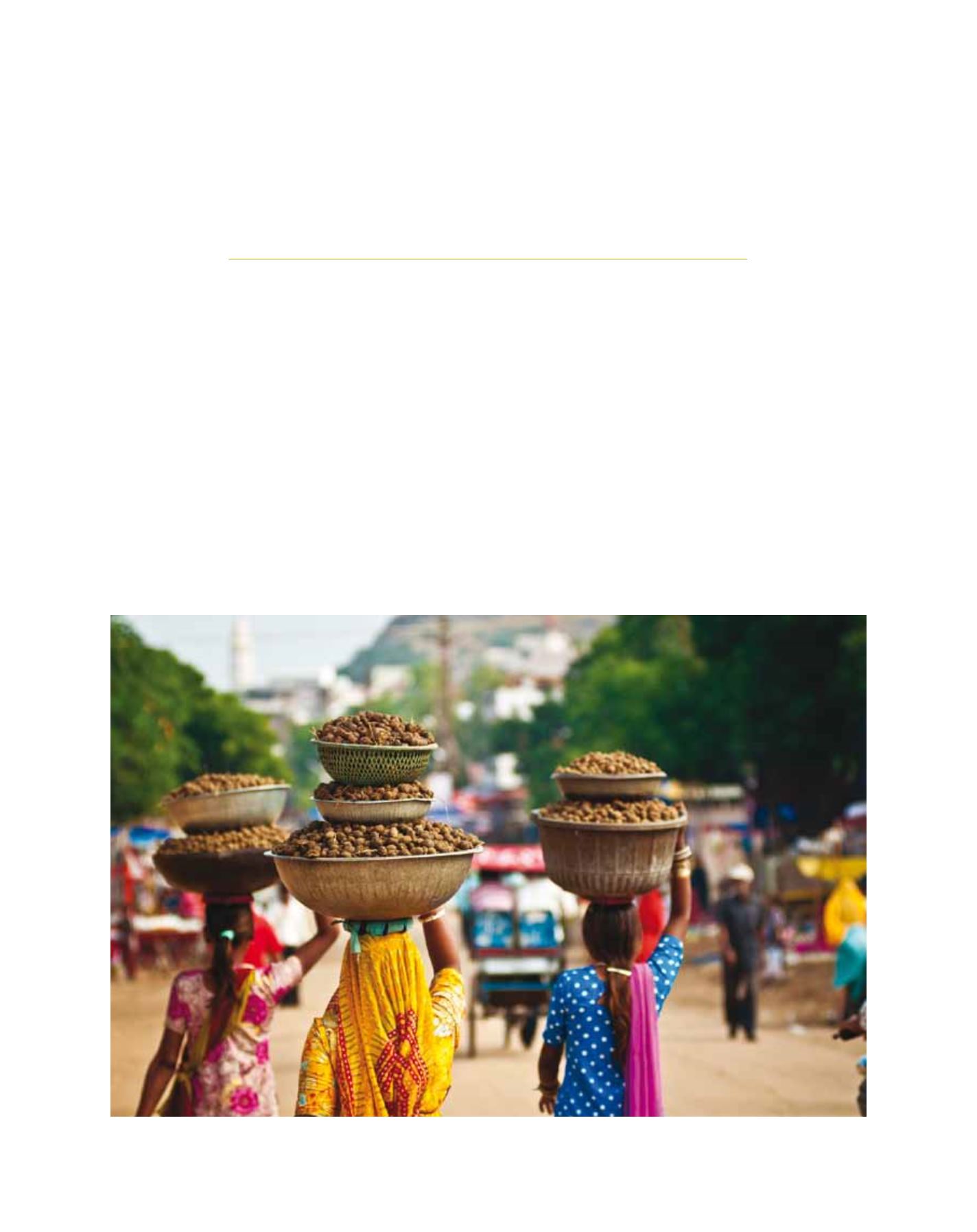

[
] 250
How the Met Office (UK) is building capacity
and supporting adaptation in some of the
world’s most vulnerable regions
Professor Julia Slingo, Chief Scientist, Met Office (UK)
A
recent World Bank policy research paper observes:
“Global warming is expected to heavily impact agricul-
ture, the dominant source of livelihood for the world’s
poor. Yet, little is known about the distributional implications
of climate change at the sub-national level.”
It’s likely that the strongest impact of climate change will be felt by
the world’s least developed countries. But without detailed climate
change understanding at a local level, governments and regional
authorities will be unable to plan adequately for the future.
With few developing countries having the capacity to
perform all the necessary climate research on their own, there’s
C
apacity
D
evelopment
an increasing need for world-leading climate change
institutions to assist. Met Office Hadley Centre
(UK) already works in this way with many coun-
tries – helping to build capacity for predicting
the effects of weather and climate change through
high-resolution regional modelling and to develop
adaptation strategies.
Among these endeavours are a major climate change
project launched in Maharashtra, India in 2011, climate-
related capacity building programmes in Bangladesh
and Singapore, and work to enhance national meteoro-
logical capabilities in Rwanda.
Global warming is expected to heavily impact agriculture, the dominant source of livelihood for the world’s poor
Image: www.istockphoto.com/ferrantraite
















